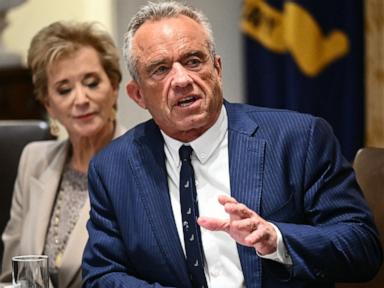Nine former directors of the Centers for Disease Control and Prevention (CDC) have publicly criticized Health and Human Services (HHS) Secretary Robert F. Kennedy Jr., claiming his actions threaten the health of Americans. This statement comes shortly after the removal of CDC Director Dr. Susan Monarez, which the directors describe as part of a troubling trend within the department. The op-ed was published in The New York Times on October 16, 2023.
The former directors, spanning administrations from Jimmy Carter to Barack Obama, expressed alarm over Kennedy’s recent decisions, including the dismissal of thousands of federal health workers and promotion of unverified treatments during a measles outbreak. They also pointed to the cancellation of $500 million in federally funded mRNA vaccine research as a significant setback for public health.
In the op-ed, co-author Dr. Richard Besser, who served as acting director of the CDC, stated that the current state of the HHS under Kennedy is “not business as usual.” He emphasized that the agency’s leadership is pursuing a radical agenda that could dismantle the country’s vaccine system and limit access to vital health interventions.
Kennedy’s administration has reportedly faced internal conflicts, highlighted by Monarez’s resistance to calls for changes to COVID vaccine policy and staff firings. The former directors argue that these actions jeopardize not only current health measures but also future public health responses. Besser noted, “What we are seeing taking place in the Department of Health and Human Services… is something different altogether.”
Their concerns extend beyond the CDC, as they called for increased oversight from Congress. The op-ed echoes sentiments from Senator Bill Cassidy (R-Louisiana), who has urged his Senate committee to investigate the leadership changes at the CDC. The directors have urged state and local governments to compensate for potential funding shortfalls resulting from Kennedy’s policies.
Besser stated that the recent leadership changes at the CDC leave the U.S. vulnerable to health challenges. “We can’t predict when the next pandemic will be here, but we know there will be future pandemics,” he remarked. He and his colleagues share a unified concern that the federal public health system is in “major jeopardy,” with the CDC’s reputation as a leading health institution at stake.
In their op-ed, the former directors called for immediate action from Congress to restore stability and funding for public health initiatives. They emphasized that their collective experience across multiple administrations underscores the urgency of their message. Besser concluded, “We were unified in our feeling that what we’re seeing is extremely alarming and that Congress needs to step up and perform its oversight function.”
As the debate surrounding public health policy intensifies, the actions of Kennedy and the response from health officials will continue to be closely monitored by both the public and lawmakers.
